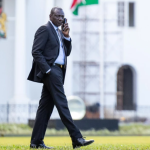Israel is seeking modifications to a proposed truce plan for Gaza and the release of hostages held by Hamas, complicating efforts to finalize an agreement to end nine months of conflict that have severely impacted the region.
According to a Western official and sources from Palestine and Egypt, Israel now insists that displaced Palestinians should undergo screening as they return to northern Gaza when the ceasefire begins, moving away from a prior agreement that would have allowed civilians who fled south to return freely.
Israeli negotiators are concerned that returning populations may support Hamas fighters still entrenched in northern Gaza. The Palestinian militant group has rejected this new demand, as reported by Palestinian and Egyptian sources.
Additionally, another contentious issue involves Israel’s insistence on retaining control over Gaza’s border with Egypt, a demand that Cairo has dismissed as outside the framework of a final agreement.
Requests for comment on Israel’s demands from Israeli Prime Minister Benjamin Netanyahu’s office, the White House, and Egypt’s foreign ministry went unanswered.
“Netanyahu is still stalling. There is no change in his stance so far,” said Hamas senior official Sami Abu Zuhri, who did not comment directly on Israel’s demands.
Word of the new sticking points came as U.S. President Joe Biden pressed for a ceasefire in talks in Washington on Thursday with Israeli Prime Minister Benjamin Netanyahu on reaching a final deal.
“We are closer now than we’ve been before,” said White House national security spokesperson John Kirby, adding that gaps remained.
In a speech to the U.S. Congress on Wednesday, Israeli Prime Minister Benjamin Netanyahu stated that Israel is engaged in “intense efforts” to secure the release of hostages held in Gaza.
Sources who spoke to Reuters requested anonymity to discuss Israeli demands due to the sensitivity surrounding the ongoing negotiations to finalize a truce and the release of hostages taken during the Hamas-led assault on Israel on October 7, which initiated the Gaza war.
According to Israeli reports, the attack resulted in the deaths of 1,200 people and over 250 captives, with around 120 hostages still in captivity. However, Israel believes that about a third of these hostages may already be dead. Gaza health authorities report that more than 39,000 Palestinians have been killed, with most of Gaza’s 2.3 million residents displaced due to the conflict, leading to a significant humanitarian crisis.
The United States, Qatar, and Egypt have been facilitating indirect talks between Israel and Hamas, focusing on a framework proposed by U.S. President Joe Biden to resolve outstanding issues. This framework consists of three phases, starting with a six-week ceasefire and the release of women, the elderly, and wounded hostages in exchange for hundreds of Palestinian prisoners held by Israel.
Discussions regarding the second phase, which Biden refers to as “a permanent end to hostilities,” would take place during the first phase, while major reconstruction efforts would commence in the third phase.
U.S. officials have indicated that a deal is close, although several hurdles remain. Israeli officials increased their demand for a mechanism to vet civilians returning to northern Gaza during the last negotiating session in Cairo earlier this month, a move that was unexpected according to the Western official.
Israel is concerned not only about Hamas fighters slipping back north, but “operatives” among civilians who provide covert support to the group that governs Gaza, the official said.
According to Israeli officials and three other sources, there has been hesitation regarding the withdrawal of Israeli forces from a nine-mile (14 km) strip of land along the border with Egypt, known as the Philadelphi corridor. The Israel Defense Forces took control of this area in May, claiming it is a strategic zone that contains smuggling tunnels used by Hamas to obtain weapons and supplies.
Egypt asserts that it dismantled the tunnel networks leading to Gaza years ago and has established a buffer zone with border fortifications to prevent smuggling.
Recent efforts have focused on finding a solution to this issue, whether through an Israeli withdrawal or by establishing some understanding of how to manage the area, according to the Western official, who did not provide further details.
A senior official from the Biden administration, briefing reporters ahead of Netanyahu’s meeting with the U.S. president, stated that they are in the final stages of securing a deal.
“There are some things we need from Hamas, and there are some things we need from the Israeli side. I think you’ll see that play out here over the course of the coming week,” the official mentioned. Among the requirements from Hamas was the release of hostages, though the official did not elaborate further.
However, Hamas spokesperson Zuhri rejected the assertion, claiming, “The U.S. administration is trying to cover up for Netanyahu’s undermining of the deal by saying there are things demanded from both sides. This isn’t true.”



